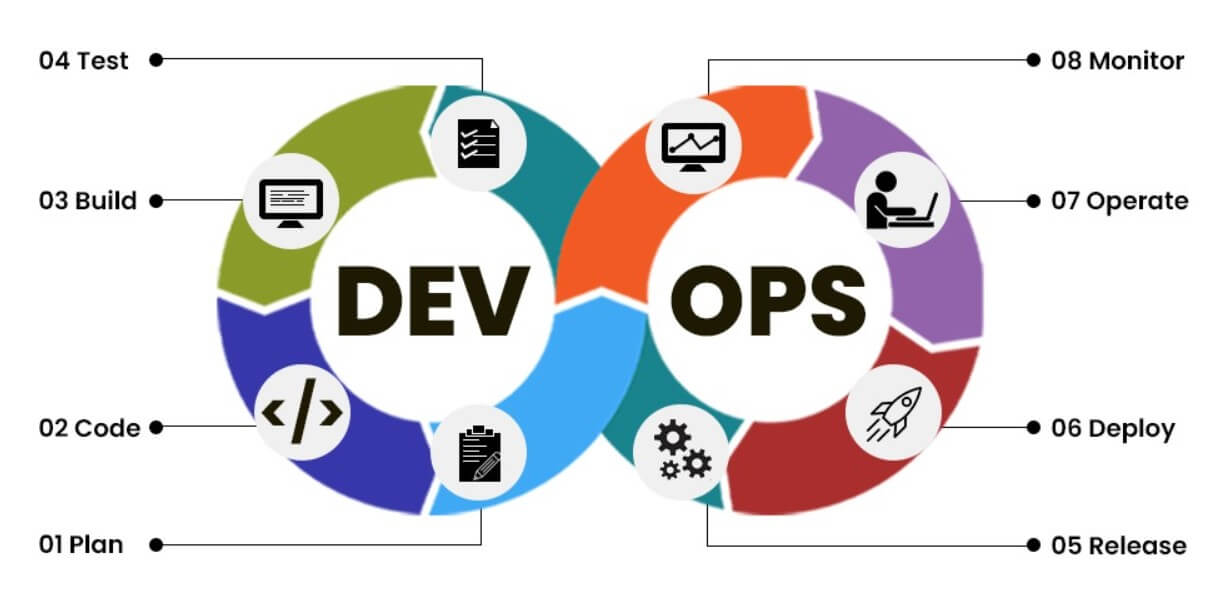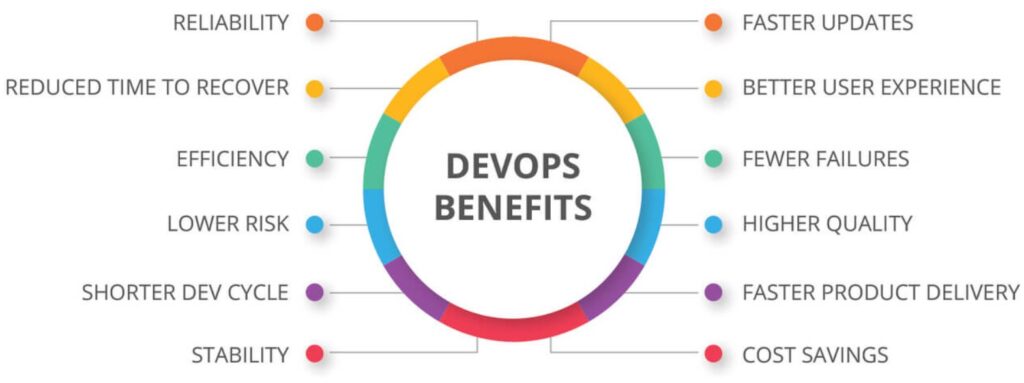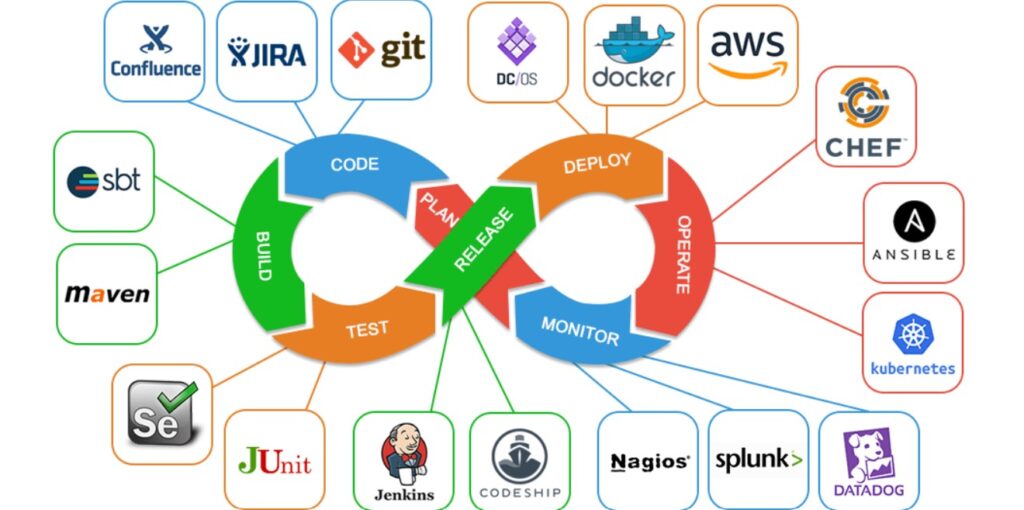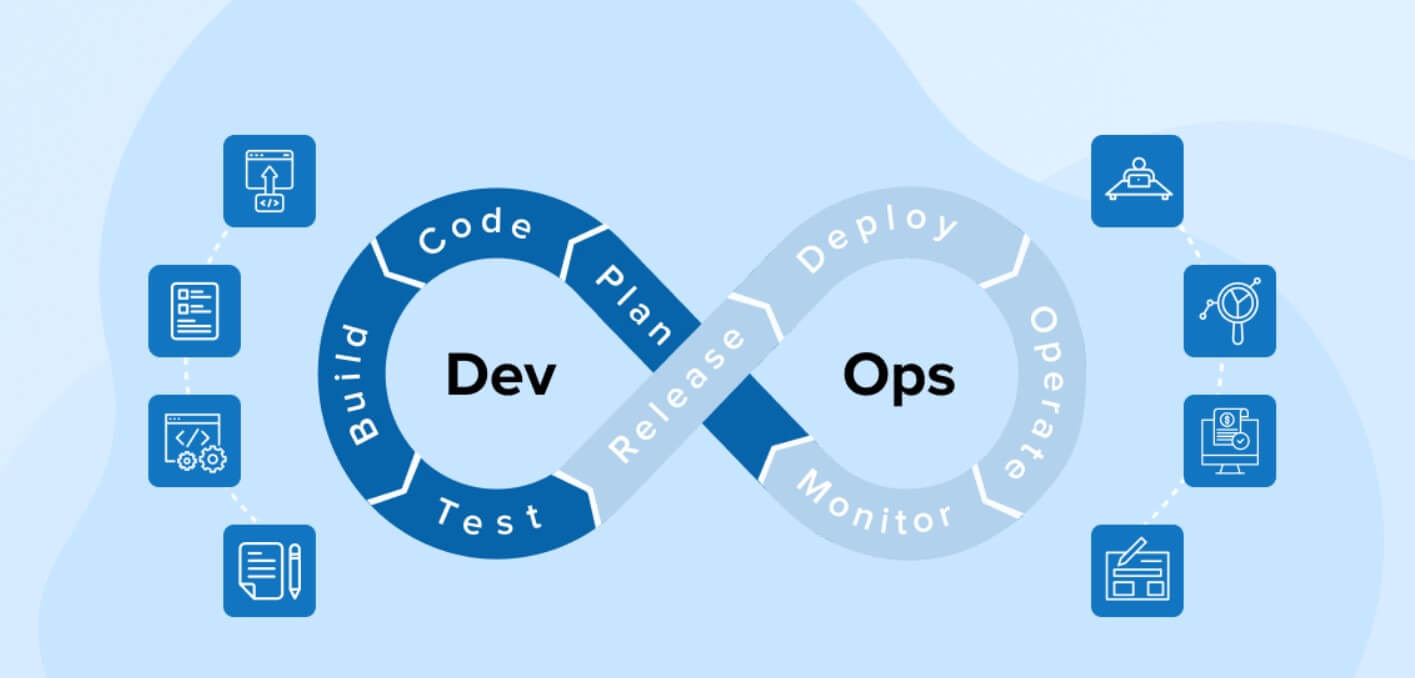In the present swift advanced scene, associations are consistently attempting to convey programming quicker, with better caliber, and with more significant dexterity. DevOps automation has developed as a unique benefit in this endeavor, permitting associations to smooth out their product improvement lifecycle (SDLC) and accomplish remarkable degrees of effectiveness and efficiency.
Before this, you must check IoT Health care and the Internet of Things in medical technology
What is DevOps Automation?

DevOps Automation refers to the utilization of programming apparatuses and innovations to computerize arduous and manual undertakings across the SDLC, encapsulating stages like preparation, improvement, testing, arrangement, and observing. Via mechanizing these endeavors, associations can dispense with human blunder, minimize the time spent on ordinary exercises, and set loose designers to focus in on additional crucial drives.
Advantages of DevOps Automation

The reception of DevOps Automation brings a significant number of advantages to associations, including:
Accelerated Software Delivery: Computerization completely reduces the time it takes to move programming from advancement to creation, empowering associations to react quickly to display requests and delivery new elements or upgrades all the more every now and again.
Enhanced Software Quality: Computerized testing techniques guarantee that product goes through rigorous examination, distinguishing and settling surrenders from the get-go in the SDLC, motivating greater deliveries and a superior client experience.
Reduced Risk of Failures: Computerized sending and rollback systems reduce the gamble of programming disappointments or personal time, ensuring a steady and solid programming conveyance process.
Improved Collaboration and Communication: Robotization isolates storehouses among improvement and tasks groups, promoting improved cooperation and correspondence, motivating a more brought together and productive DevOps culture.
Fundamental Instruments for DevOps Automation

- A thorough Dev Ops Automation system comprises a spectrum of instruments that handle explicit aspects of the SDLC:
Continuous Integration (CI) Tools: CI tool computerizes the method connected with merging code updates from multiple engineers into a brought-together code storehouse, empowering early identification of faults and assuring consistent joining.
Continuous Delivery (CD) Tools: Cd tools automate the most common means of building, testing, and sending programming discharges, smoothing out the conveyance pipeline and minimizing the time it takes to offer new pieces or upgrades.
Infrastructure as Code (IaC) Tools: IaC tools treat foundation assets, including servers, stockpiling, and systems administration, as code, empowering automated provisioning and the executives, guaranteeing consistency and repeatability across circumstances.
Configuration Management Tools: Setup the board tools to automate the arrangement of programs and foundation, guaranteeing that frameworks are arranged reliably and dependably, lowering the danger of blunders and irregularities.
Monitoring and Alerting Tools: Observing and alarming tools supply constant permeability into the presentation and soundness of programming and foundation, empowering early identification of issues and proactive objective, reducing free time and interruptions.
Adopting DevOps Automation: A Journey of Transformation

The productive execution of Dev Ops automation demands a comprehensive methodology that envelops social movements, hierarchical arrangement, and the reception of proper tools and innovations. Associations ought to consider about the accompanying advances:
Establish a DevOps Culture: Develop a cooperative and cross-utilitarian atmosphere where improvement and tasks groups cooperate consistently, sharing liability regarding programming conveyance.
Assess Current Processes: Assess existing SDLC processes and distinguish regions for computerization, zeroing in on tedious, manual assignments that can be smoothed out through innovation.
Select Appropriate Tools: Cautiously pick Dev Ops automation tools that line up with the association’s unique wants and specialized capacities, guaranteeing similarity and interoperability.
Implement and Integrate Tools: Execute the picked tools methodically, supplying preparation and support to assure reception and combining with current work processes.
Continuously Evaluate and Improve: Consistently analyze the viability of DevOps automation works on, distinguishing regions for development and refining cycles to simplify execution and results.
Conclusion
DevOps automation has changed the manner in which organizations approach programming innovation and conveyance.
Via automating monotonous assignments, encouraging coordinated effort, and empowering quick input circles, Dev Ops automation engages associations to convey excellent programming quicker, more productively, and with more prominent spryness, driving them to the front of advancement and serious achievement.
As innovation goes on advancing, Dev Ops automation will without a doubt assume a much more basic part in molding the eventual fate of programming improvement.
- Releasing the Power of DevOps Automation: Embracing DevOps Consulting for Seamless Software Delivery
In the rapidly increasing universe of programming development, organizations are continually looking for approaches of upgrading their nimbleness, proficiency, and ability to deliver amazing programming solutions.
DevOps automation has developed as an exceptional power, empowering organizations to smooth out their product improvement lifecycle (SDLC) and accomplish striking degrees of efficiency and development.
Nonetheless, departing on a Dev Ops automation excursion can be a difficult attempt, wanting cautious preparation, crucial execution, and progressing enhancement. This is when DevOps consulting assumes a significant position.
The Role of DevOps Consulting in Enabling DevOps Automation
DevOps Consulting administrations provide associations with the mastery and direction they need to explore the challenges of DevOps Automation successfully. Experienced DevOps professionals have a thorough knowledge of DevOps standards, methods, and instruments, and can assist associations with surveying their existing situation, characterize their DevOps objectives, and execute a custom fitted DevOps computerization technique.
Why Draw in DevOps Consulting for DevOps Automation?
The advantages of calling in DevOps consultants for DevOps automation are diverse and complex:
Skill and Direction: DevOps consultants give an abundance of information and experience that would be valuable, offering associations the mastery they need to settle on educated choices and explore the nuances regarding Dev Ops automation.
Objective Assessment: DevOps consultants offer an unprejudiced review of an association’s ongoing SDLC processes, distinguishing regions for automation and proposing suggestions to progress.
Tailored Strategy Development: DevOps experts assist associations with cultivating a modified DevOps automation procedure that lines up with their unique objectives, specialized capacities, and business necessities.
Effective Tool Implementation: DevOps experts help with choosing, carrying out, and incorporating the most suited DevOps automation solutions, guaranteeing similarity and optimal execution.
Cultural Transformation Guidance: DevOps consultants operate with a social shift inside associations, nurturing cooperative effort and separating storehouses among improvement and tasks groups.
Continuous Optimization: DevOps consultants offer continuous guidance and direction, assisting firms with constantly assessing and modify their DevOps automation rehearses for optimal outcomes.
- Key Stages for Effective Dev Ops Automation with DevOps Consulting
To make progress in DevOps automation using DevOps Consulting, organizations ought to follow these essential stages:
Partner with Experienced DevOps Consultants: Pick respectable DevOps consulting organizations with a demonstrated history of outcome in supporting associations with carrying out Dev Ops automation approaches.
Establish Clear Goals and Objectives: Obviously characterize the association’s Dev Ops automation objectives, changing them to generally speaking business goals and execution metrics.
Conduct a Thorough Assessment: Connect with DevOps consultants to guide an extensive appraisal of the continuing SDLC, distinguishing locations for mechanization and likely issues.
Develop a Tailored DevOps Automation Strategy: Team up intimately with DevOps specialists to produce a redid DevOps computerization procedure that lines up with the association’s novel wants and capacities.
Implement and Integrate Tools Effectively: Work with DevOps professionals to identify, execute, and coordinate fitting Dev Ops automation tools, guaranteeing constant connection with existing work processes.
Empower Teams with Training and Support: Give complete preparation and support to development and activities groups, ensuring they are prepared to truly utilize the new tools and cycles.
Continuously Monitor and Optimize: Lay out a nonstop checking and improvement process, consistently reviewing the viability of DevOps automation processes and making changes depending on the situation.
